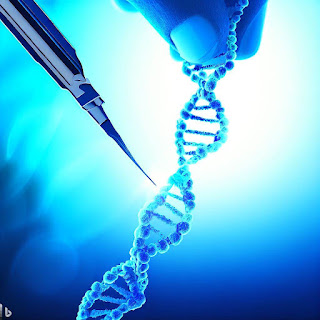By: Dr. Gabriel Rodriguez
I. Introduction
Understanding the aging process
The quest for youth and longevity
The role of diet in aging
Aging is a natural and inevitable process that affects every individual. As we grow older, our bodies undergo various changes, both internally and externally. Though aging is a part of life, there is a continuous pursuit to slow down its effects and maintain a youthful appearance and vitality. One factor that plays a crucial role in this quest is our diet. The food we consume has a significant impact on our aging process, and one approach that has gained considerable attention is calorie restriction.
II. Exploring Calorie Restriction
What is calorie restriction (CR)?
Origins of calorie restriction
Defining the CR diet
Calorie restriction, also known as CR, is a dietary practice that involves limiting daily calorie intake while ensuring adequate nutrition. This approach traces its roots back to scientific experiments conducted on laboratory animals in the early 20th century. Researchers discovered that reducing calorie intake without causing malnutrition could extend the lifespan and delay the onset of age-related diseases. Building upon this research, the concept of calorie restriction emerged as a potential means to promote longevity and delay the aging process.
III. The Science Behind Calorie Restriction
How calorie restriction affects the body
Cellular mechanisms at play
Impact on metabolism and hormonal balance
Calorie restriction triggers a range of physiological responses within the body. By consuming fewer calories, the body's metabolic rate adjusts to conserve energy and optimize nutrient utilization. This mechanism engages several cellular processes that promote cellular repair, enhance DNA stability, and reduce the accumulation of harmful metabolic byproducts. Moreover, calorie restriction impacts hormonal balance, influencing the secretion of various hormones involved in metabolism, growth, and the aging process.
IV. Calorie Restriction and Age-Related Diseases
Calorie restriction's effect on age-related diseases
Preventing cardiovascular conditions with CR
Reducing the risk of neurodegenerative disorders
Calorie restriction has shown promising effects in reducing the risk and progression of age-related diseases. Studies indicate that CR can lower the incidence of cardiovascular conditions by improving blood lipid profiles, reducing inflammation, and promoting heart health. Additionally, calorie restriction has been linked to a decreased risk of neurodegenerative disorders, such as Alzheimer's and Parkinson's diseases, due to its ability to mitigate oxidative stress and protect brain cells.
V. Calorie Restriction and Longevity
The link between calorie restriction and extended lifespan
Research and studies highlighting longevity benefits
Lessons from animal models and human populations
The association between calorie restriction and extended lifespan has been extensively researched. Various studies conducted on animals, ranging from yeast to primates, consistently demonstrate that calorie restriction can lead to a significant increase in lifespan. These findings have also been observed in certain human populations, such as the Okinawans of Japan, who traditionally practice calorie restriction through their dietary habits. These observations provide compelling evidence for the potential longevity benefits of calorie restriction.
VI. Implementing Calorie Restriction
Step-by-step guide to starting a CR diet
Determining appropriate calorie intake
Balancing nutrient requirements
Implementing a calorie restriction diet requires careful planning and consideration. It is crucial to gradually reduce calorie intake while ensuring that all essential nutrients are adequately obtained. Consulting with a healthcare professional or registered dietitian can help determine an appropriate daily calorie goal based on age, sex, activity level, and overall health. Balancing the intake of macronutrients, such as carbohydrates, proteins, and fats, is vital to prevent deficiencies and maintain optimal bodily functions.
VII. Overcoming Challenges of Calorie Restriction
Coping with hunger pangs and cravings
Maintaining energy levels during CR
Strategies for sticking to the diet
Embarking on a calorie restriction diet can present challenges, as the body may initially resist the reduced calorie intake. Hunger pangs and cravings are common hurdles that individuals may face. However, adopting strategies like eating smaller, more frequent meals, incorporating high-fiber foods, and staying hydrated can help manage hunger. Additionally, maintaining energy levels during calorie restriction can be achieved by consuming nutrient-dense foods, prioritizing protein intake, and engaging in regular physical activity. Developing a support system and finding motivation through personal goals can assist in adhering to the diet long-term.
VIII. Combining Calorie Restriction with Intermittent Fasting
Exploring the benefits of intermittent fasting (IF)
How IF complements calorie restriction for anti-aging effects
Different methods of incorporating IF with CR
Intermittent fasting (IF) is another dietary approach often used in conjunction with calorie restriction to enhance its anti-aging effects. IF involves cycling between periods of fasting and eating. By incorporating IF alongside calorie restriction, individuals can further optimize their metabolic responses, promote autophagy (the body's cellular recycling process), and improve insulin sensitivity. Popular methods of IF include the 16:8 method, where fasting occurs for 16 hours daily, and the 5:2 method, where two non-consecutive days restrict calorie intake to a specific limit.
IX. Calorie Restriction and Exercise
Synergistic effects of CR and exercise on aging
Choosing the right exercises during CR
Maximizing results through proper workout routines
Combining calorie restriction with regular exercise can exert synergistic effects on the aging process. Exercise enhances the benefits of calorie restriction by improving cardiovascular health, maintaining muscle mass, and promoting overall vitality. Choosing the appropriate exercises during calorie restriction is crucial to prevent overexertion and ensure maximum benefit. Engaging in a mix of aerobic exercises, strength training, and flexibility exercises can optimize the results and support overall wellbeing.
X. Potential Risks and Considerations
Possible drawbacks or risks of calorie restriction
Monitoring health during CR
Seeking professional advice before starting CR
While calorie restriction can offer numerous benefits for anti-aging purposes, it is essential to be aware of potential risks and considerations. Drastic calorie reduction without proper guidance can lead to nutritional deficiencies, muscle wasting, or metabolic disturbances. Regular health monitoring, including blood tests and check-ups, is crucial to track any changes or imbalances. Before embarking on a calorie restriction diet, it is advisable to consult with a healthcare professional or registered dietitian to ensure it aligns with individual nutritional needs and overall health status.
XI. Success Stories and Testimonials
Stories of individuals who have experienced anti-aging effects through CR
Shared journeys and lessons learned
Personal testimonials highlighting the benefits of CR
Numerous individuals have embraced calorie restriction as a lifestyle and witnessed significant anti-aging effects. Their success stories serve as inspiration for others seeking to improve their health and well-being. These stories often highlight the positive transformations achieved through calorie restriction, emphasizing the importance of commitment, perseverance, and the adoption of lifelong habits. Personal testimonials showcase the physical and mental benefits experienced, encouraging others to explore this age-defying approach.
XII. Beyond Calorie Restriction: Other Anti-Aging Approaches
Exploring alternative strategies for age-defying effects
Anti-aging supplements and their effectiveness
Lifestyle factors that complement calorie restriction
While calorie restriction is a powerful tool in the pursuit of age-defying effects, it is essential to consider additional anti-aging approaches. Exploring alternative strategies, such as stress reduction techniques, quality sleep, and regular skincare routines, can further enhance the overall anti-aging benefits. Some individuals may also choose to incorporate anti-aging supplements into their regimen, although their effectiveness varies and should be approached with caution. Combining these lifestyle factors with calorie restriction can maximize the potential for a healthier and longer life.
XIII. Frequently Asked Questions (FAQs)
What is the best age to start calorie restriction?
Can calorie restriction lead to malnutrition?
Is calorie restriction suitable for everyone?
Can CR reverse already-existing signs of aging?
Are there any specific food recommendations for a CR diet?















